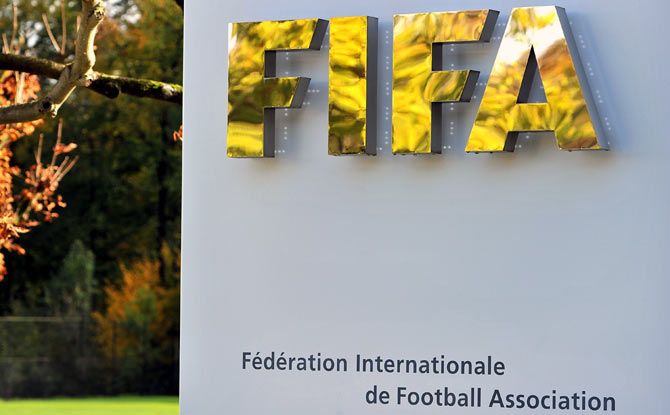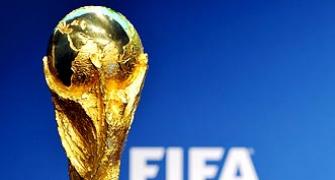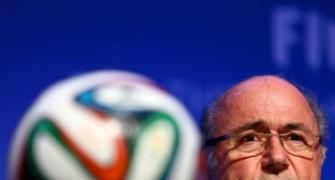
FIFA ended more than four years of uncertainty over the timing of the 2022 World Cup in Qatar by announcing on Thursday that it would be played in November and December with the final on December 18.
Spokesman Walter De Gregorio said the winter tournament would probably last 28 days, instead of the 32 for last year's finals in Brazil, but this was still to be decided.
"The executive committee today ... decided that, yes, we are going to play in November and December and, yes, the final is going to be played on December 18," De Gregorio told reporters at FIFA headquarters.
"It's a Sunday and it's also the national day of Qatar and, in principle, we try to play in 28 days.
"The next steps will be to have different talks especially related to the match calendar," he added, referring to the 2019-22 cycle of international fixtures and the 2023 African Nations Cup in Guinea that is scheduled to be played in January.
Thursday's news was widely expected after the November/December period had been recommended by a task force of soccer's ruling body FIFA.
It will be the first time the tournament has been played outside the European summer.
Qatar was awarded the event in December 2010 on the basis it would take place in the summer in air-conditioned stadiums.
But within days Franz Beckenbauer, an executive committee member at the time, and UEFA president Michel Platini suggested a winter World Cup would be possible.
Qatar always said a summer World Cup was viable thanks to cooling technologies it is developing for stadiums, training areas and fan zones. However, there was still widespread concern for the health of players and supporters.
The decision could set FIFA on a collision course with the European clubs who had suggested staging the tournament in May as a compromise.
The European Clubs Association (ECA), which represents more than 200 teams, previously said they would demand compensation for interrupting the league season.
In addition to the tournament, clubs must release players two weeks before for training and warm-up friendlies.
The ECA demand had already been rejected by FIFA secretary general Jerome Valcke who said the switch to November/December was a one-off.
Qatar still faces controversy for its treatment of migrant workers, mainly from Nepal and India, employed in the construction industry.
FIFA president Sepp Blatter has said Qatar must do more to protect those working on 2022 sites.











